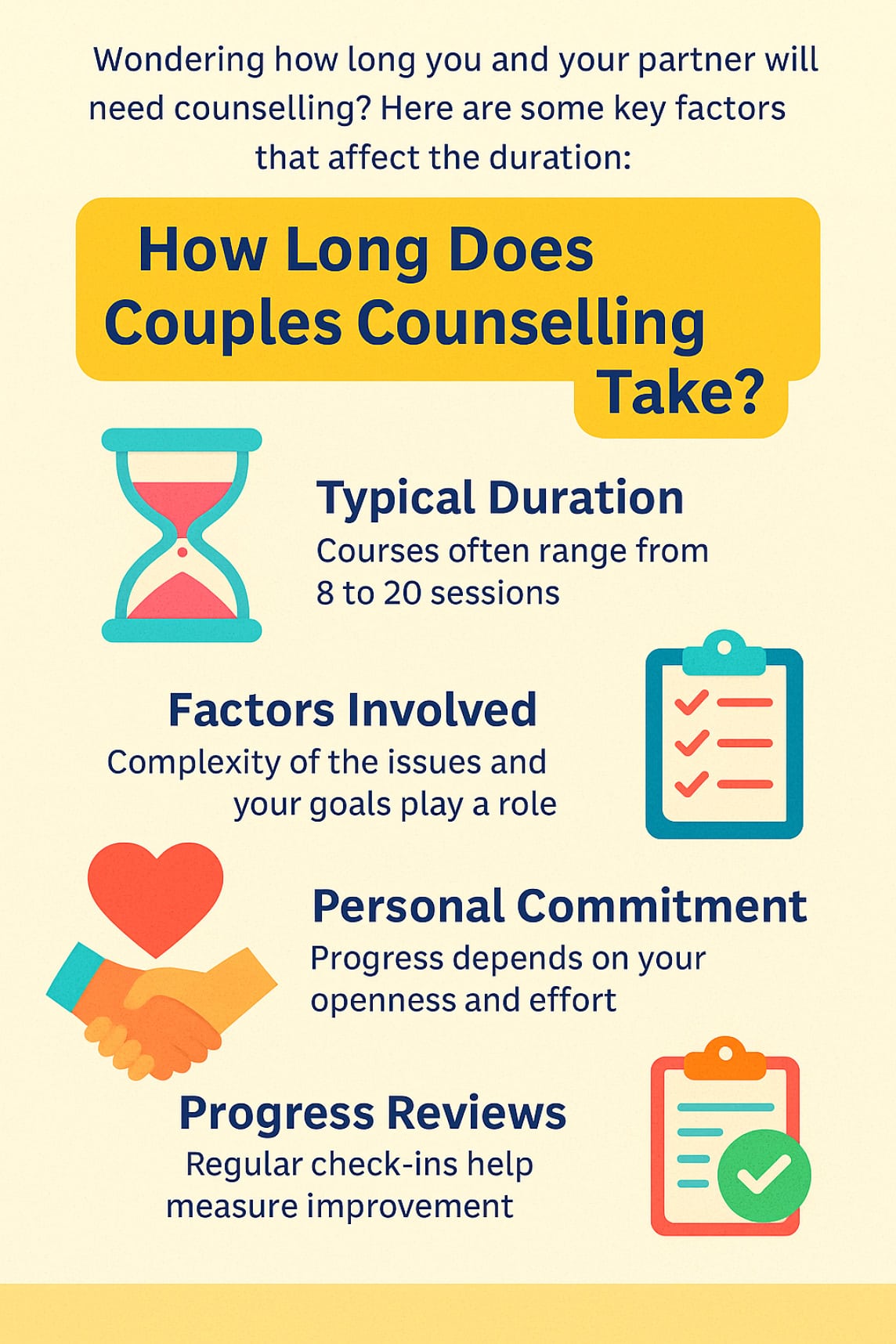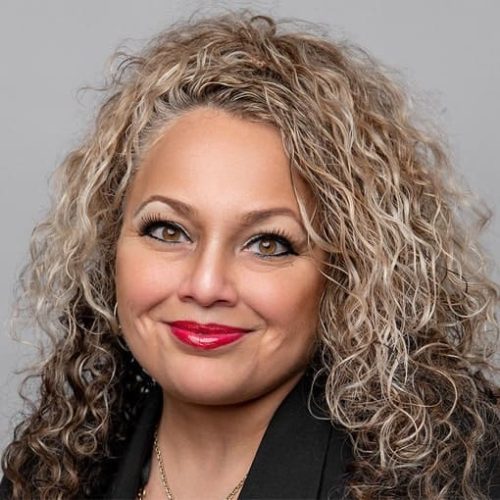
Key Takeaways for Couples Counselling Duration.
- Average couples counselling duration is 8–20 sessions.
- Progress depends on consistency, openness, and between-session practice.
- More complex issues or crises may require extended support.
- Regular reviews help track effectiveness and guide treatment pacing.
- Follow-up booster sessions can help sustain progress long term.
For more information, visit the AERCS Couples Counselling page.

Most couples complete therapy within 8 to 20 sessions, which translates to roughly three to six months of weekly or bi-weekly meetings. This couples counselling duration can shrink or stretch depending on your goals, the severity of the issues you are tackling, and how consistently you practise new skills between sessions.
Typical Timelines at a Glance.
| Therapy Phase | Average Number of Sessions | Purpose |
|---|---|---|
| Assessment & Goal Setting | 1 – 3 | Gather history, define objectives, and outline a treatment road map |
| Skill Building & Practice | 5 – 12 | Learn communication tools, conflict de-escalation, and intimacy exercises |
| Integration & Review | 2 – 5 | Fine-tune progress, troubleshoot setbacks, and plan next steps or maintenance |
Key takeaway: Many couples see noticeable change by session 6 and reach their main goals by session 12, provided they do homework regularly.
Factors That Influence Duration.
Complexity of Concerns.
- Mild communication issues: Often resolved in fewer than 10 sessions.
- Deep trust breaches: Such as infidelity or long-term resentment, usually need closer to 20 sessions.
Commitment Level.
Couples who attend consistently and complete homework shorten the process by up to 30 percent.
Therapist’s Approach.
- Structured models like the Gottman Method use clear milestones, keeping treatment focused.
- Exploratory styles, such as psychodynamic work, may extend timelines to explore deeper themes.
The Power of Between-Session Practice.
Couples who dedicate at least 10 minutes a day to homework, for example daily appreciations or active listening drills, show faster gains. Consider these bite-sized tasks:
- Stress-Reducing Conversation: Five-minute check-in after work.
- Fondness Journal: Record one positive partner action each day.
- Problem-Solving Dialogue: Schedule a 20-minute slot weekly to tackle lingering issues.
Progress Reviews: Your Built-In Checkpoints.
Most therapists schedule a brief progress audit every fourth session. Together you will:
- Measure improvements in conflict frequency or intimacy scores.
- Adjust goals if new stressors emerge, for example a relocation or new baby.
- Decide whether to taper sessions, maintain the current pace, or pause therapy.
Periodic reviews prevent the process from drifting and give you clear data on return-on-investment.
Signs You May Be Ready to Wrap Up.
- You can resolve disagreements without outside coaching.
- Trust has been rebuilt and daily interactions feel positive.
- You follow through on shared goals, from budgeting to parenting tasks.
Graduation does not mean perfection, it means you have the tools to manage future bumps.
What if We Need a Tune-Up Later?
Many couples book one or two booster sessions every six to twelve months. Think of this as preventive maintenance that keeps small misunderstandings from snowballing.
Choose a Pace that Fits Your Relationship.
The average couples counselling duration is 8 to 20 sessions, but the exact number depends on your unique story, dedication, and practice habits. Regular check-ins with your therapist ensure you are on track and help you finish as efficiently as possible. Ready to map out a timeline that suits your relationship? Book an appointment or schedule your complimentary 15-minute phone consultation today.
How long does couples therapy usually last?
The average couples counselling duration is between 8 and 20 sessions, depending on your goals and the complexity of the issues you are facing. Most couples begin to see real progress by the sixth session, especially when they attend consistently and complete homework between visits.
What factors affect the couples counselling duration for my relationship?
Several factors impact couples counselling duration, including the depth of your concerns, how open both partners are, how regularly you attend sessions, and how actively you practise new skills at home. Mild communication problems may resolve in fewer than 10 sessions, while deeper trust or emotional wounds might require closer to 20 or more
Can we shorten our couples counselling duration by doing homework?
Yes. Couples who commit to practising communication tools and emotional check-ins outside of therapy often shorten their couples counselling duration by up to 30 percent. Even ten minutes a day spent on connection-building tasks like appreciation notes or stress-reducing conversations can make a big difference.
How will we know when our couples counselling duration is complete?
You will know your couples counselling is nearing completion when you can resolve disagreements calmly, feel emotionally connected, and follow through on shared goals without needing therapist guidance. Your counsellor will help assess this through regular progress reviews and discussions about your readiness to finish or taper off.
What if our issues return after our initial couples counselling duration ends?
That is completely normal. Many couples book booster sessions every six to twelve months after their initial couples counselling ends. These brief tune-ups help address new stressors or prevent old habits from resurfacing, giving your relationship continued support over time.

